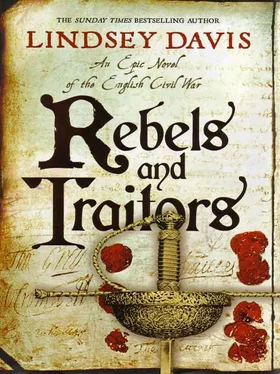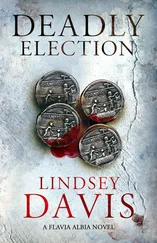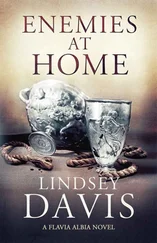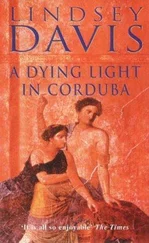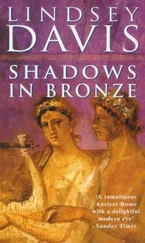Lindsey Davis - Rebels and traitors
Здесь есть возможность читать онлайн «Lindsey Davis - Rebels and traitors» весь текст электронной книги совершенно бесплатно (целиком полную версию без сокращений). В некоторых случаях можно слушать аудио, скачать через торрент в формате fb2 и присутствует краткое содержание. Жанр: Исторические приключения, на английском языке. Описание произведения, (предисловие) а так же отзывы посетителей доступны на портале библиотеки ЛибКат.
- Название:Rebels and traitors
- Автор:
- Жанр:
- Год:неизвестен
- ISBN:нет данных
- Рейтинг книги:4 / 5. Голосов: 1
-
Избранное:Добавить в избранное
- Отзывы:
-
Ваша оценка:
- 80
- 1
- 2
- 3
- 4
- 5
Rebels and traitors: краткое содержание, описание и аннотация
Предлагаем к чтению аннотацию, описание, краткое содержание или предисловие (зависит от того, что написал сам автор книги «Rebels and traitors»). Если вы не нашли необходимую информацию о книге — напишите в комментариях, мы постараемся отыскать её.
Rebels and traitors — читать онлайн бесплатно полную книгу (весь текст) целиком
Ниже представлен текст книги, разбитый по страницам. Система сохранения места последней прочитанной страницы, позволяет с удобством читать онлайн бесплатно книгу «Rebels and traitors», без необходимости каждый раз заново искать на чём Вы остановились. Поставьте закладку, и сможете в любой момент перейти на страницу, на которой закончили чтение.
Интервал:
Закладка:
The solution came, though in a sad manner. Robert Allibone's wife died. Gideon's brother Lambert had served his grocery apprenticeship with a master whose wife ordered the lads about, but Margery was no bully and rarely came in the print shop. Gideon had always known that she and his master were devoted. He occasionally overheard what he knew were the sounds of lovemaking; at first a fascinated boy, he came to be a young, frustrated bachelor who covered his ears. Frequently, Fleet Lane would be filled with the slow measure of the Allibones playing musical duets on large and lesser viols which they had owned since they first married.
Once widowed, Robert sought change. He decided to move to new premises in the City and asked Gideon to go with him as his partner. Gideon eagerly accepted. They set up at the top end of Basinghall Street, close to the Guildhall, between Cripplegate and Moorgate. At the north end were fair houses with long gardens, while southwards were smaller premises and closeted alleys. Walking for a few minutes, across Lothbury, with its noisy copper shops, and down Ironmongers Lane, Gideon could reach the Jukes's grocery shop. He had not quite come home to mother, but he was well within reach of Bread Street; he could reacquaint himself with the glory of her Dutch pudding. Nowadays puddings were mixed as a joint effort by Parthenope and Lambert's pretty wife Anne, a dark-eyed, sensible girl from Bishopsgate; as soon as it was seen that she had a light touch with manchet rolls, Anne had fitted in with her mother-in-law. The women worked peacefully together in the kitchen, where John Jukes often nodded on a settle nowadays, dawdling into his senior years with his head as full of schemes as ever. Lambert effortlessly ran the business.
Gideon was welcomed back. Since he would be sharing premises with Allibone, he would cause no ructions with Lambert. His mother took a new look at her returning son, this twenty-year-old with fair hair and a loping stride, who had reached manhood with a scathing view of the world, but was apparently now content with his own place in it. She wondered what other concerns would call him, and whether she would live to see his future. Mothers like to believe their sons are marked for greatness. Parthenope, whose head was filled with musings whenever her hands were busy in a mixing bowl, knew that it mainly led to disappointment. But Lambert, who had never given her a moment's qualm, had also never given her the feeling of potential she experienced with Gideon. So she made him some mock-bacon marzipan — two-tone stripes in a whimsical streaky pattern — while she pretended he was just a troublesome boy again, needing rosewater for his acne. And she waited.
Gideon liked to take Robert home as a guest to dinner. However, it happened infrequently, after a mishap when a piece of skewer was unfortunately left in a veal olive; it splintered into the unwary printer's hard palate.
Gideon had always known that Robert Allibone was sceptical of authority. All through his apprenticeship Gideon had spotted that their shop sold some inflammatory material. The master never involved his apprentice. Seditious 'almanacs' were only ever printed by himself; they were kept in a locked cupboard and were quietly passed to customers who knew in advance what they were buying. Gideon now started reading them.
Once they moved to Basinghall Street, Allibone's yearning for reform became more open. 'Print brings knowledge. What we publish can show the people their rights and liberties.'
He had chosen his new premises deliberately, to bring him amongst others of a like mind. Basinghall Street seemed close to respectability as it wound around the Guildhall and several livery company halls. But Gideon soon realised that their narrow shopfront was less important than their even more ramshackle back door. Behind where he and Allibone worked and civilly served aldermen with tide tables and news-sheets, accessible through adjoining yards and over a wall with convenient footholds, lay Coleman Street. This was a hotbed of radical printers and several extreme religious groups had meeting-places there. This was where the women preachers gathered and gave soaring sermons to their free-thinking sisters, and occasional free-living brothers. Coleman Street also contained the Star Tavern, which was to become famous as a haunt of Parliamentarian conspirators.
Chapter Four — London: 1641-42
Gideon felt he was living at the turn of an extraordinary period. All generations complain about the government, but he felt a distinct tingle that this would be different.
Nobody really intended to start a civil war. Most past wars had been fought against foreign aggressors. Others were to decide who should be king, not whether a ruler was a bad king — though if he was a bad king that helped to validate any usurper. In a highly unusual gesture, Scottish King James had acknowledged that he was invited to succeed Queen Elizabeth by his new English subjects. His son Charles never entertained any such concept; Charles believed God had given him authority, which none could question. Puritans and other Independents, who talked to God directly, heard a different message. Why would the Lord have chosen a rickety, ill-educated, devious autocrat, married to a manipulative foreign Catholic, a man who was at once desperate to be loved and yet had an impressive flair for causing offence? While earnest subjects tried to find a compromise, a compromise the King never thought necessary, the nation slipped by a series of shunts and bumps into armed conflict. Since there were neither foreign aggressors nor pretenders to the throne, people called it a war without an enemy.
It was never foreseen that the struggle would turn into a revolution. Everyone was clear that it was treason for subjects to take up arms against the king. On both sides there was horror of the coming bloodshed. On both sides there were many who hoped to preserve the peace.
There was, initially, a 'junto' of aristocrats setting up to challenge the King's authority after he took back their traditional powers and privileges to grant to his own favourites. The earls of Northumberland, Warwick, Bedford, Hertford, Pembroke, Leicester and Essex were men of land and lineage whose ancestors had held great power; they were also backed among others, by lords Saye and Sele, Mandeville and Brooke. These plotted secretly, how to wrest back influence the King had taken from them. They all owned homes in the country where they were out of reach of the court, and also houses in London between which they could flit like sociable moths, right under the King's nose. Their family trees were so interconnected they could scarcely be untangled to draw them on paper, as intricately linked by blood and marriage as lace, with a web of younger brothers, stepsons, sons-in-law, even bastards. They were patrons to others, further down the social chain yet educated and energetic — lawyers, secretaries and men of business — who would eventually be significant in the House of Commons. The junto members were Presbyterians and puritans; they loathed the bishops' influence in secular affairs. They cultivated their own links with foreign states. Some had considered escaping to the New World to form a godly commonwealth more to their liking. But instead they were colluding with friends, and although it was treason to invite a foreign army into England, they formed an alliance with Scotland which would have very long-term consequences.
The King became embroiled in dispute with the Scots. They were to feature frequently and often cynically in events. Back in 1637 in Edinburgh, a kerbside cabbage-seller called Jenny Geddes had flung her stool at the head of the Dean of St Giles Cathedral, bawling in protest when he used the hated new Anglican Book of Common Prayer. Two years later, encouraged by the English earls' junto, the Scots rebelled in arms against the King's imposition of High Anglican bishops. They were pacified. In 1640 they rebelled again.
Читать дальшеИнтервал:
Закладка:
Похожие книги на «Rebels and traitors»
Представляем Вашему вниманию похожие книги на «Rebels and traitors» списком для выбора. Мы отобрали схожую по названию и смыслу литературу в надежде предоставить читателям больше вариантов отыскать новые, интересные, ещё непрочитанные произведения.
Обсуждение, отзывы о книге «Rebels and traitors» и просто собственные мнения читателей. Оставьте ваши комментарии, напишите, что Вы думаете о произведении, его смысле или главных героях. Укажите что конкретно понравилось, а что нет, и почему Вы так считаете.
